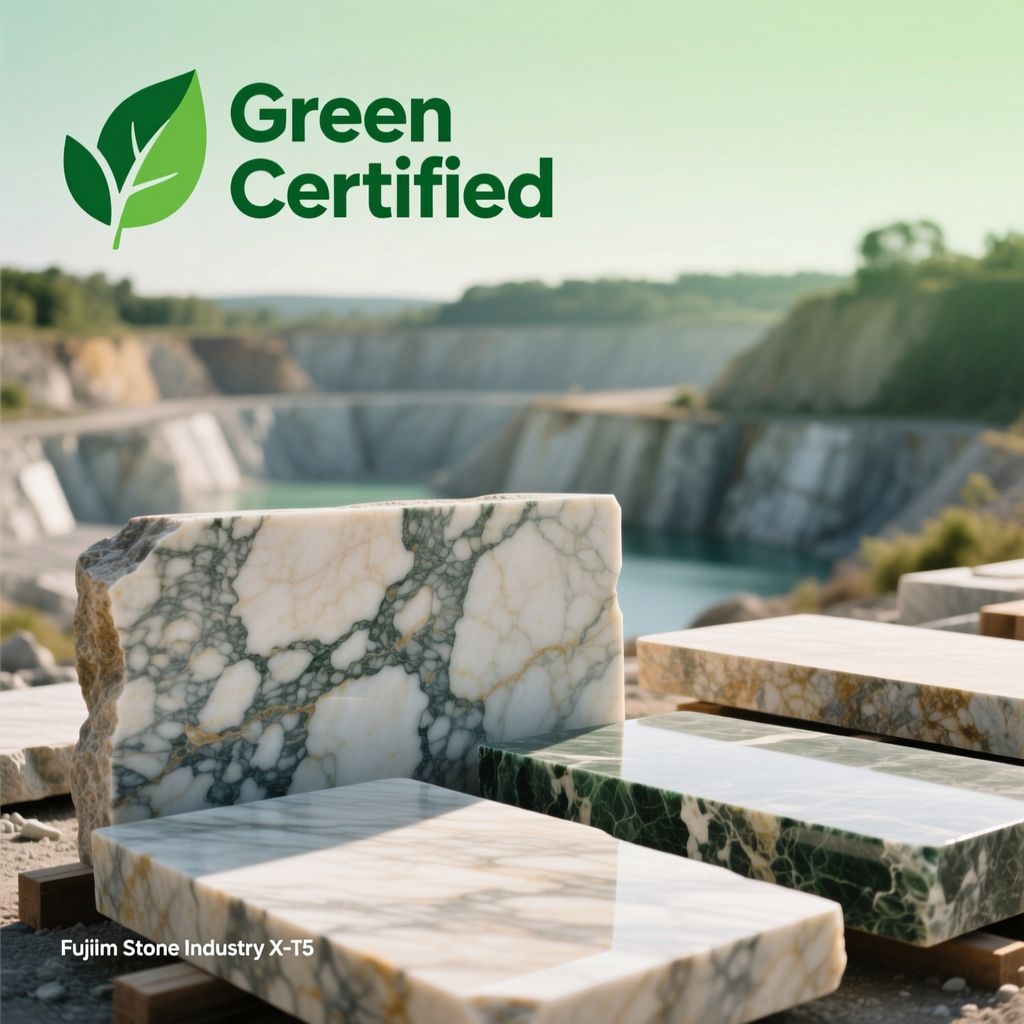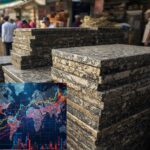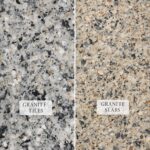A Guide to Green Certifications for Natural Stone Suppliers
As the global demand for sustainable building materials grows, architects, designers, and developers are increasingly looking for verified proof of a supplier’s environmental and ethical credentials. Green certifications provide this assurance, offering a transparent framework for evaluating the lifecycle of natural stone—from the quarry to the completed building.
For a stone supplier, these certifications are a badge of commitment to responsible practices. At Iran Stone Market, we believe in the importance of these standards and are dedicated to principles that align with sustainable sourcing. This guide will help you understand the key certifications and what they mean for your project.
Why Do Green Certifications Matter for Stone?
Natural stone is inherently a green material: it is durable, recyclable, and requires less processing than many manufactured alternatives. However, certifications provide quantifiable data and third-party verification on critical aspects that aren’t always visible, such as:
-
Carbon Footprint of extraction and transportation.
-
Water Reclamation and Usage in processing.
-
Worker Health and Safety in quarries and factories.
-
Biodiversity and Land Reclamation efforts post-quarrying.
-
Chain of Custody to ensure ethical sourcing.
Key Certifications and Standards for the Stone Industry
1. LEED (Leadership in Energy and Environmental Design)
What it is: The most widely used green building rating system in the world, administered by the U.S. Green Building Council (USGBC). It certifies entire buildings, not individual suppliers, but the materials used contribute significantly to the score.
How Stone Contributes: Using natural stone can contribute to LEED points in several categories:
-
Regional Materials: Sourcing stone extracted and processed within a 500-mile radius of the project site.
-
Recycled Content: Using reclaimed or recycled stone.
-
Low-Emitting Materials: Natural stone has zero VOC emissions.
-
Environmental Product Declarations (EPDs): Having an EPD for a stone product provides transparent data on its environmental impact and can earn additional points.
2. NSF/ANSI 373
What it is: A North American standard that specifically assesses the environmental impact of dimension stone (like granite, marble, and limestone) based on a Life Cycle Assessment (LCA). It is one of the most direct certifications for stone itself.
What it Measures: It evaluates and certifies stone products based on:
-
Water use and recycling in processing.
-
Energy consumption and efficiency.
-
Corporate governance and social responsibility.
-
Chain of custody from quarry to customer.
-
Reclamation plans for quarries.
3. EPD (Environmental Product Declaration)
What it is: An EPD is not a certification but a standardized document that transparently reports the environmental data of a product based on its Life Cycle Assessment (LCA). It’s like a nutrition label for a product’s environmental impact.
Why it’s Important: For stone, an EPD provides verified data on global warming potential (carbon footprint), water consumption, and acidification potential. Architects use EPDs to make informed comparisons between different building materials.
4. ISO 14001 (Environmental Management Systems)
What it is: An international standard that provides a framework for an organization to manage its environmental responsibilities. A quarry or processing plant with ISO 14001 certification has a system in place to minimize its environmental impact and comply with regulations.
Ethical Sourcing & XQ (eXcellent Quarry) Certification
Beyond environmental metrics, the industry is increasingly focused on the social and ethical aspects of quarrying. Certifications like the XQ (eXcellent Quarry) standard, developed by the Natural Stone Institute, verify that quarries operate with:
-
Safe and healthy working conditions.
-
Ethical labor practices.
-
Respect for local communities.
-
Transparent governance.
The Iran Stone Market Commitment to Sustainable Practices
While the path to formal international certification is complex, our commitment to sustainable and ethical principles is active and ongoing. We align our operations with the core values these certifications represent:
-
Responsible Quarrying: We partner with quarries that prioritize land management and are developing plans for future site reclamation.
-
Efficient Water Management: Our processing partners utilize water recycling systems to minimize freshwater consumption.
-
Waste Reduction: We optimize block cutting to maximize yield and work with partners who repurpose stone off-cuts into aggregates or tiles, minimizing landfill waste.
-
Durability as Sustainability: We provide stone of the highest quality, ensuring it lasts for generations—the most powerful form of reducing a project’s long-term environmental footprint.
We are committed to transparency and are actively exploring the steps necessary to achieve formal environmental certifications to better serve our global clients.
Source with Confidence and Responsibility
Choosing a stone supplier is about more than just aesthetics and price. It’s about selecting a partner who shares your commitment to the planet and its people.
Let’s discuss how Iranian stone can contribute to your sustainable project. Contact us to learn more about our stone and our commitment to responsible practices.







